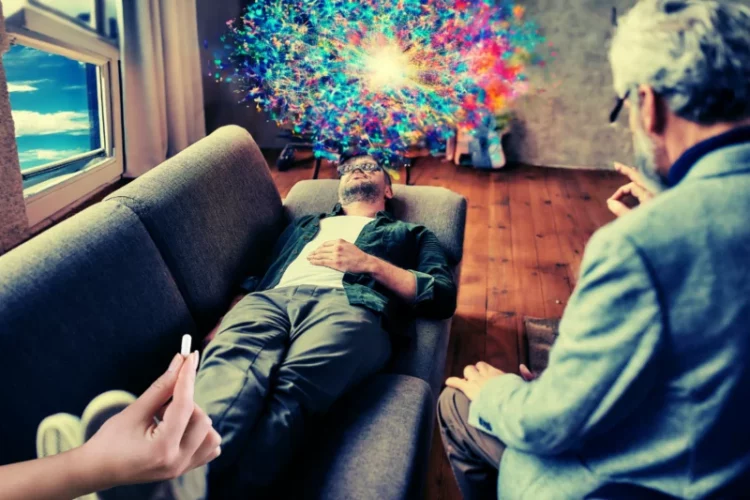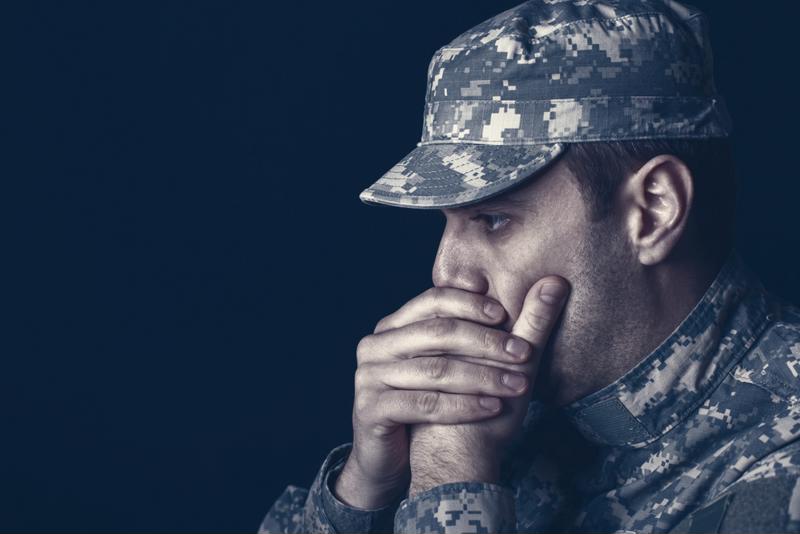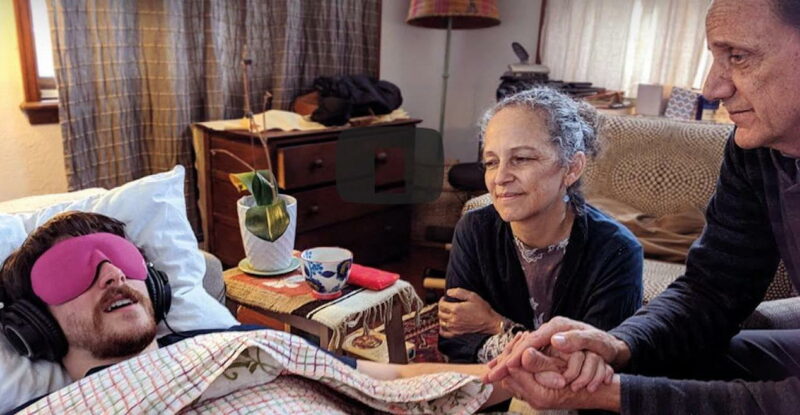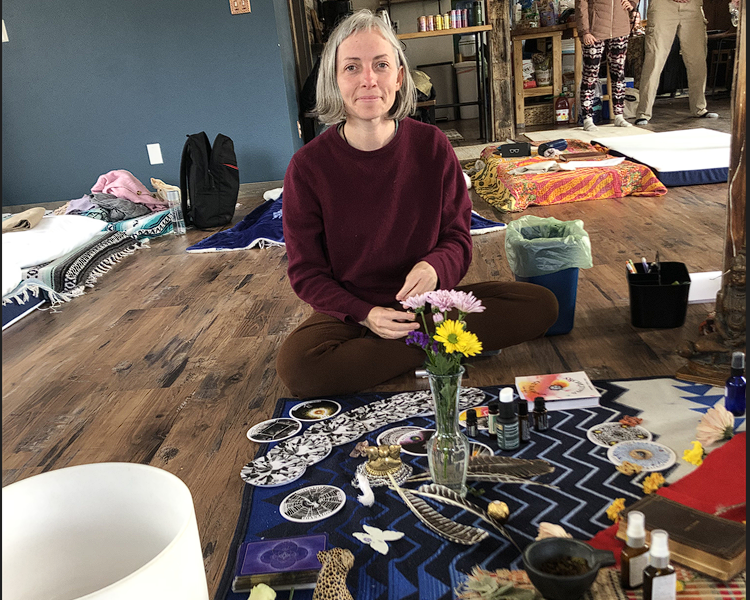
MDMA Retreats
Psychedelic retreats are popping up all over the world and employing all sorts of different psychoactive compounds, from ayahuasca to psilocybin. Current research is proving MDMA to be potentially even more effective than other psychedelics at treating depression. But today, there aren’t many MDMA ‘retreats’ around. Why is that, and what is the best way to access MDMA treatment? Read on to find out.
Table of Contents
What is MDMA Good For?
You’ve probably heard that MDMA makes you feel extra lovey-dovey and really enhances good vibes at a festival. But current research is also proving its efficacy in treating mental health conditions.
For instance, in a pilot study, research participants suffering from PTSD were administered MDMA. The study found that ten out of twelve participants ceased to meet the diagnostic criteria for PTSD by the end of the study. Six subsequent phase two trials with larger sample sizes were then carried out. In every one, MDMA-assisted psychotherapy was shown to be an effective and well-tolerated treatment for PTSD. These results led the United States Food and Drug Administration (FDA) to designate MDMA as a “breakthrough therapy” in the treatment of PTSD.

In 2021, MDMA was part of a landmark phase three-trial into psychedelic-assisted therapy. The results saw over 66% of participants in MDMA-assisted psychotherapy sessions failed to meet the criteria for PTSD two months post-treatment. Even recipients who suffered from treatment-resistant PTSD experienced noticeable reductions in depressive symptoms. These results have led to research on MDMA’s applications for other mental health conditions. It sees very promising for social anxiety and anxiety related to life-threatening illnesses. It has also driven speculation on its potential benefits in treating depression.
An MDMA Session
An MDMA treatment session is not that different from treatments conducted with other psychedelic substances. As with other forms of psychedelic-assisted therapy, preparation and integration are at the very heart of the treatment. For example, some formalized protocols offer up to twelve 90-minute therapy sessions without MDMA as part of the program. The first of these non-drug sessions prepare the patient and build trust, while the sessions after the MDMA treatments focus on integration. Patients work with two physicians trained in MDMA-assisted psychotherapy to ensure close medical monitoring and patient well-being.
The setting is similar to that used with other psychedelics as well. MDMA therapy typically takes place in a comfortable room, not unlike a ketamine clinic. Treatment with natural substances such as ayahuasca, San Pedro, and psilocybin often include a traditional ceremonial element. Treatment with MDMA is done in a clinical setting and does not have a traditional origin, so there is no ceremonial aspect of the experience.
After ingesting the MDMA, the therapist encourages the patient to focus internally and examine their thoughts and feelings. Usually, specific issues are identified as the focus of treatment prior to consumption. The therapist provides guidance and support but is unlikely to actively direct the experience. Instead, the patient takes the lead in self-examination and processing of emotions.

After the effects of MDMA wear off (over three to six hours), the therapist will assist with integration. In the case of MDMA, this exercise is typically more hands-on then with other entheogens as there is somewhat more risk in consuming MDMA. Subsequent sessions, both with and without MDMA, are also conducted, so the patient can continue to integrate the experience.
Finding MDMA Retreats
Positive research results are leading people to seek treatment protocols and retreats offering MDMA. But MDMA, unlike some other psychedelic medicines, is still illegal in most countries. Unlike compounds such as ayahuasca and psilocybin, MDMA does not occur in nature. It has no precedent as having been used for religious or spiritual purposes by any culture. Unfortunately, this translates to greater government skepticism and less legality–but that’s likely to change as a result of recent research. A few outposts do exist:
MDMA Retreats: Divine Light Integration
Located in the mountainous interior of British Columbia, Canada, Divine Light Integration Psychedelic Retreat offers a transformative experience. With over thirty years of experience in various Spiritual and Personal Growth Modalities, Melanie intuitively holds space for others on their healing journeys. Here you can learn how to work with a wide range of approaches to healing, including a variety of psychedelic medicines such as psilocybin, 5-MeO-DMT, MDMA, and more.

MDMA Retreats: Medicinal Mindfulness
Medicinal Mindfulness Psilocybin Retreat in Boulder, Colorado, is one of North America’s first legal psychedelic therapy clinics. The team has been developing groundbreaking therapies in Cannabis-Assisted Psychedelic Therapy since 2012. Today their focus is on MDMA-Assisted Psychotherapy and Ketamine-Assisted Psychotherapy, under the expert guidance of industry leaders.

Where Else Can I Get MDMA-Assisted Therapy?
Currently, MDMA is illegal in most countries, which means that it’s difficult for the general public to access treatment programs. The one exception is Australia, where MDMA was approved earlier this year for clinical use in PTSD. If you don’t live in Australia and/or don’t have PTSD, here are a few ways you may be able to gain access to treatment anyway:
1.) Through the Special Access Program (Canada)
In Canada, medical professionals are able to request MDMA–but only for patients with serious or life-threatening conditions for which other therapies have not helped. New Earth Therapy is one clinic that provides MDMA-assisted therapy as a part of the special access program. Patients must first receive approval from their physician and from Health Canada to participate. Additionally, Katya Sivik provides online therapeutic integration sessions after MDMA experiences.
2.) Through the Expanded Access Program (USA)
In the USA, the expanded access program allows some patients to receive MDMA treatment outside of clinical trials. Like in Canada, this program is geared towards patients with serious and/or life-threatening conditions who are either ineligible for or not able to find relief with other treatment options and who are not able to participate in ongoing clinical trials.
MDMA-assisted psychotherapy for PTSD is expected to be approved by the FDA this year or next. Some centers, such as Denver Therapy, intend to offer it once it is legalized for therapeutic use outside of clinical trials and the expanded access program.
3.) By Participating in Clinical Trials
Right now, clinical trials are the preferred and easiest way to gain access to MDMA-based therapy. You can find all MDMA clinical trials worldwide listed here by searching for ‘MDMA’. Here are some examples of trials that are currently recruiting participants:
- Acute Effects of R- and S-MDMA in healthy subjects: This trial is taking place in Basel, Switzerland.
- MDMA-assisted therapy for adjustment disorder (AD) in dyads of patients with cancer and a concerned significant other. This is for patients in Rockville, Maryland.
- Prosocial Effects of MDMA: This study tests whether MDMA produces greater prosocial effects when taken in the presence of a familiar person, rather than a stranger. It’s taking place in Chicago, Illinois.
- This is another ongoing trial in Basel, Switzerland testing the effects of MDMA in healthy volunteers.
- This one is geared towards US military veterans with PTSD; it aims to compare the effects of two versus three MDMA-assisted therapy sessions for this population.
- This study in Portland, Oregon is investigating MDMA for use in treating social anxiety.
- Here’s another one for veterans; this is for veterans who are experiencing combat-related, refractory PTSD. It’s taking place in Loma Linda, California.
- This trial compares the effects of MDMA and another stimulant on social motivation, social ability, and neural indices of social function. The researchers are currently recruiting healthy volunteers in Chicago, Illinois.
- Here is a biomarker study being done in Palo Alto, California, which is currently searching for healthy volunteers in order to study how MDMA impacts reward circuits in the brain.
Although MDMA is currently difficult to obtain in therapeutic contexts, that’s changing fast as more and more studies indicate promising results. Expect to see MDMA-assisted therapy more widely available in North America in the next couple of years.

Comments